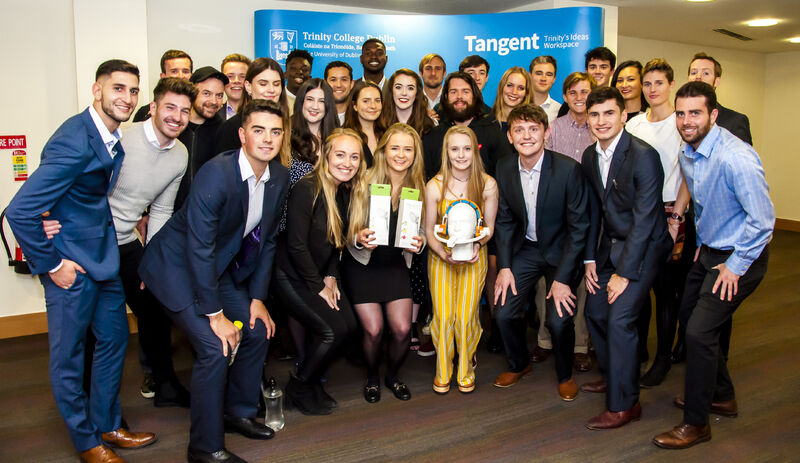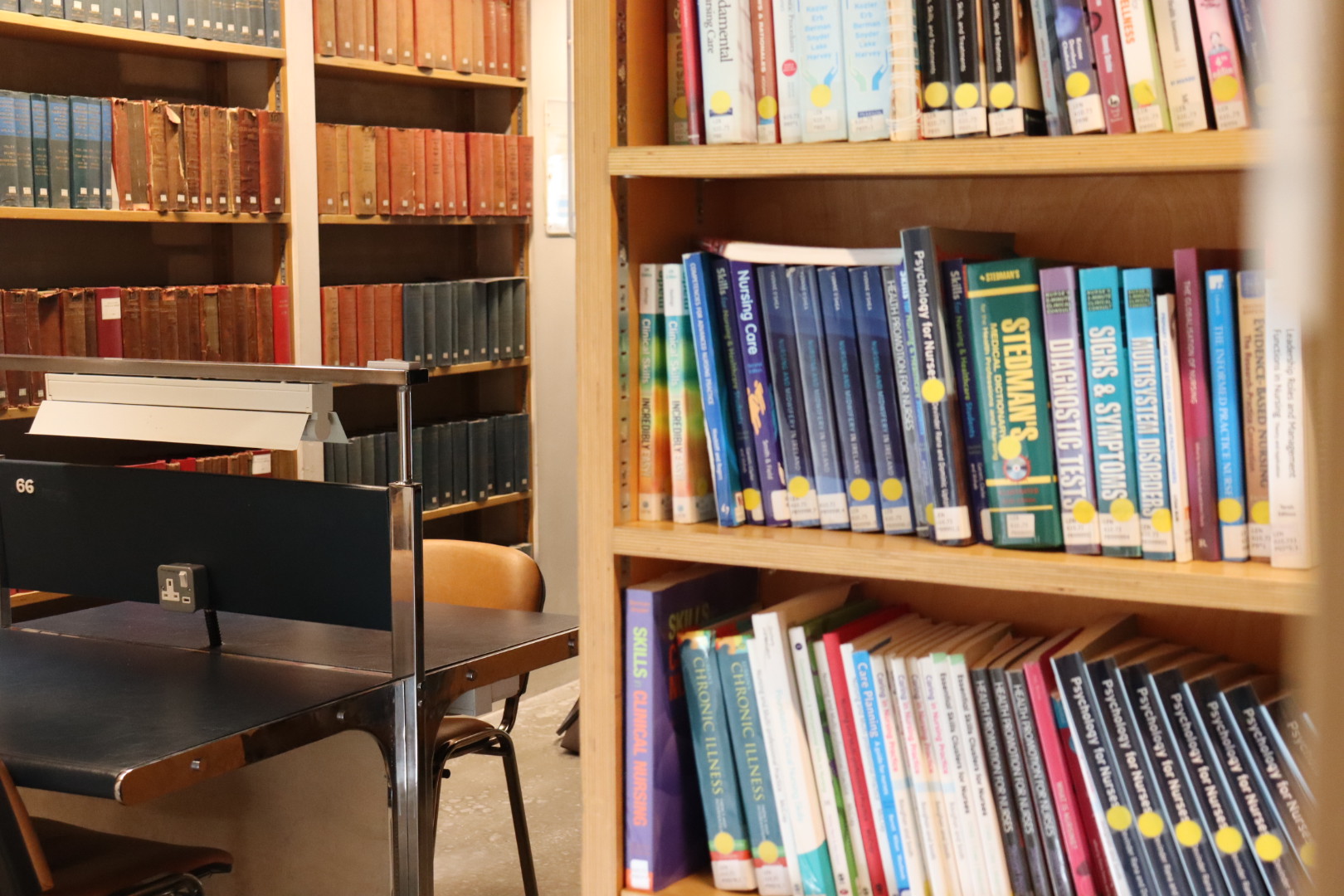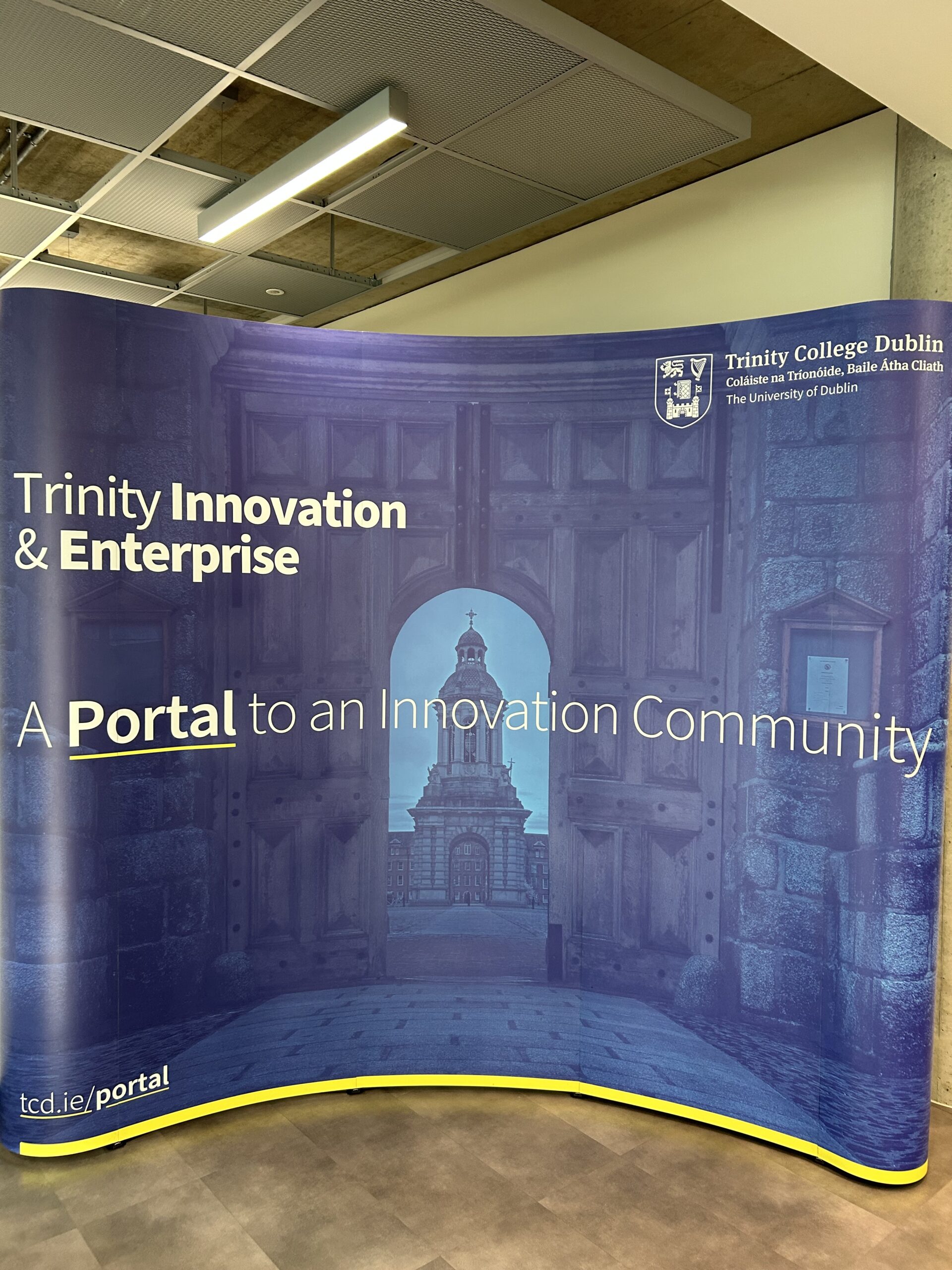Against a backdrop of uncertainty, entrepreneurs have struggled both with stagnant creativity and capital inequality over the past year. But by providing adequate support, community-based learning and a business framework, Launchbox hopes to provide a space to invest in students – and their ideas.
The student accelerator programme, Launchbox, was established through alumni donations and structurally linked to Tangent, launched in September 2018 with support from Bank of Ireland. Ken Finnegan, CEO of Tangent, explains that the parent project “revolves around creativity, innovation, and entrepreneurship and all our programmes essentially harness the creativity of our students, develop the innovative capability and brings out the entrepreneur in them”.
Finnegan describes the three-month Launchbox initiative as a “journey” for participants. “From getting excited about the world of opportunity to educating themselves in terms of equipping them with the skills to be entrepreneurial and innovative, and then providing the platform for taking that idea and turning it into impact.”
Finnegan explains that a “safe environment” that enables students to “fail forward” allows them “to take [their] idea, to pull it apart, to stretch it, to see where the weak parts are and to improve those parts or to maybe pivot [their] idea”.
As part of the 2018 cohort of Launchbox participants, William Conaghan “was in the unique position of juggling the MBA and Launchbox… we were one of the first postgrad teams”. He explains that the limited time he and his co-founder, Lizzy Hayashida, could dedicate to Change Donations “definitely lit a match under us a little bit more strongly than some of the other teams, because we knew we didn’t have all the time so we were making sure that none of it was wasted”.
From getting excited about the world of opportunity to educating themselves in terms of equipping them with the skills to be entrepreneurial and innovative, and then providing the platform for taking that idea and turning it into impact
Although Launchbox represents an ideal opportunity for some students, accessibility issues for mature students or students with work commitments persist. Finnegan accepts “all of these things are taken into consideration for our big news in the next few months”. He hints at a new initiative “providing more opportunities for students to participate” and targeting “under-served students” as part of Tangent’s diversity strategy. Having secured approval from its advisory board last month, Tangent staff “will be working with the greater College in looking at how we can increase access for all students”.
Conaghan was one of two Launchbox participants who was included in Forbes’ 2021 ‘30 under 30’ list. Before moving to Dublin to pursue an MBA at Trinity, he worked at the American stock exchange on Wall St. He explains that he has “always been passionate about the third sector, the charitable space”. In his early years, Conaghan and his brother had worked on an initiative called Boys for Bikes, collecting bicycles around the Washington DC area to donate to the Dominican Republic.
Change Donations was founded as a micro-donation company that allows donors to round up their debit card transactions to the nearest euro and donate their digital change to pre-approved charities and nonprofits.
After initial success “playing around in internal school pitch competitions and classroom things and [where] it was all protected by the four walls of the classroom and the guiding hand of the professors there to make sure you didn’t fall off the rails”, Conaghan and Hayashida decided to submit their pitch to Launchbox, which he describes as “the real deal”.
What struck Conaghan was the collaborative nature of the learning process at Launchbox: “It’s not often that you find adults that are all doing something brand new for the first time…everybody’s fully immersed in this brand-new experience”.
Change Donations is one of many social enterprises that have emerged from Launchbox. Conaghan attributes this to the structure of Trinity business education which “inherently gears students towards ethical business, and so by default, Launchbox has a ton of ethical business propositions as pitches”.
It’s not often that you find adults that are all doing something brand new for the first time…everybody’s fully immersed in this brand-new experience
Conaghan tells me of the circular environment that exists, whereby Trinity instils ethical business teachings, and students emerge with social enterprise initiatives, rewarded by programmes like Launchbox. “You go to the US, you’re not going to find that the calibre of ethical business students that Trinity has been cultivating.”
Student Startup & Innovation Manager at Tangent Alison Treacy observes that trends “about things like tech for good, or things like sustainability, or wellness” are primarily “led by the students”. She explains that “our students and this generation are focusing much more on solving problems and leaving the world a better place than they found it”.
Conaghan insists, however, that within the framework of Launchbox, “all of these [social enterprises] are businesses first… at the end of the day there has to be a valuable business proposition, regardless of whether or not you’re doing any sort of social good”.
Although located in the Business School, Finnegan insists that “we’re not part of any school – we’re an independent unit within Trinity”. Launchbox provides a multidisciplinary approach to entrepreneurship with experts from a variety of areas, including social enterprises, advising participants, although the framework revolves around business.
Oana Rosca met her co-founder, Sarah-Marie Rust, as a postgraduate student in entrepreneurship at Trinity Business School, and together they started working on a concept for EVE, an e-mobility project. Although the pandemic derailed their initial business model of empowering more people to switch from petrol or diesel to electric cars.
Describing the challenges that faced them Rosca says: “We went through a pretty big pivot, but we came back with, I think, an even stronger business model that has the potential to make a more lasting impact. We’re now tailoring our product towards companies with car fleets and helping them make the transition to electric mobility faster and more sustainable.”
You go to the US, you’re not going to find that the calibre of ethical business students that Trinity has been cultivating
She explains that they undertook the Tangent Sprints program with Joseph Lanzillotta, Student Entrepreneurship Program Manager at Tangent, “a very good crash course that prepared us for application and then to later join Launchbox”.
Rosca insists that the community structure of Launchbox has a lingering effect: “Launchbox allowed us to create connections in the start-up world, in the investor world, with potential customers” including a pilot programme with Panda Waste Management.
“Unfortunately, because the programme last year was online, we lost a little bit of that networking aspect, but still, we made it work… we were giving each other feedback on how to improve our pitches, for instance, even though ultimately, we were competitors at Demo Day.”
What was imperative for Rosca and Rust was self-application. “You get out of it, whatever you put into it…there are sessions with speakers, practice sessions. But if you don’t apply those teachings, then it’s on you.” She adds that “I don’t think I’ve seen anyone that didn’t put in enough [effort], everybody was sort of overworking”.
Treacy explains that Lauchbox is “discipline agnostic…it’s open to all students who have an idea… no matter what their discipline, no matter what their background and, crucially, no matter what stage they’re at with their idea”.
Working within the “start-up ecosystem” in Ireland and internationally provides participants with networking opportunities both with other entrepreneurs and potential investors. Although much of Launchbox is self-led, Treacy explains “the structured program is really important. We bring in founders to talk about their start-up journey and what they did when they were starting out that they regret, challenges they faced, advice they would give. And we also bring in experts in fields like marketing, sales, manufacturing, production, tax, finance”.
Along with regular mentor meetings and “team huddles” between Treacy and the Launchbox participants, “we put a lot of emphasis on peer learning and sharing of problems”. She explains the importance of cultivating a “community where the start-ups learn and work with each other and collaborate and share knowledge and share tips. And that’s really powerful”.
You get out of it, whatever you put into it…there are sessions with speakers, practice sessions. But if you don’t apply those teachings, then it’s on you
Treacy acknowledges the barriers that exist for female students participating in initiatives like Tangent. Along with creating specific programmes like Women Who Wow, with funding from the Equality Office, Tangent is seeking to understand the indirect deterrents for women exploring an entrepreneurial field. Last year three of the 10 Launchbox teams were founded by an all-male team, and the other seven were either all-female or gender diverse.
“There’s always more we can do. There’s always more that we should be doing”, Treacy explains, “but we’re at least seeing an improvement, and we’re seeing much more interest and much more engagement from female students”.
The fusion of disciplinary and technical business expertise forms the central structure of Launchbox, with specialist networking, mentorship and €10,000 in funding. But at the heart of Launchbox are the participants, driving social products and services and embracing the daunting process of building a start-up company.
However, for many participants, this first foray into the world of entrepreneurship requires sacrifice and self-led learning before the rewards of the initiative can be reaped. Spurring student ambition to create new enterprises is the easy part – as barriers to access persist, more inclusionary initiatives to inspire diverse participation are to be welcomed.







